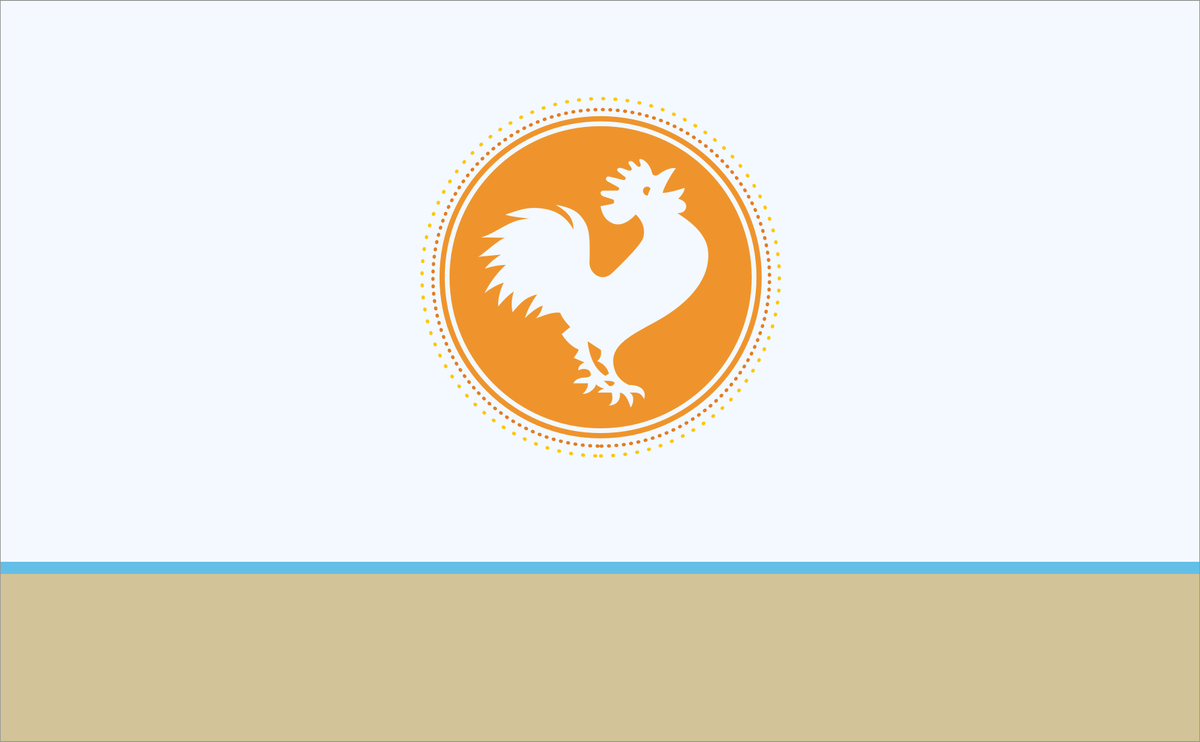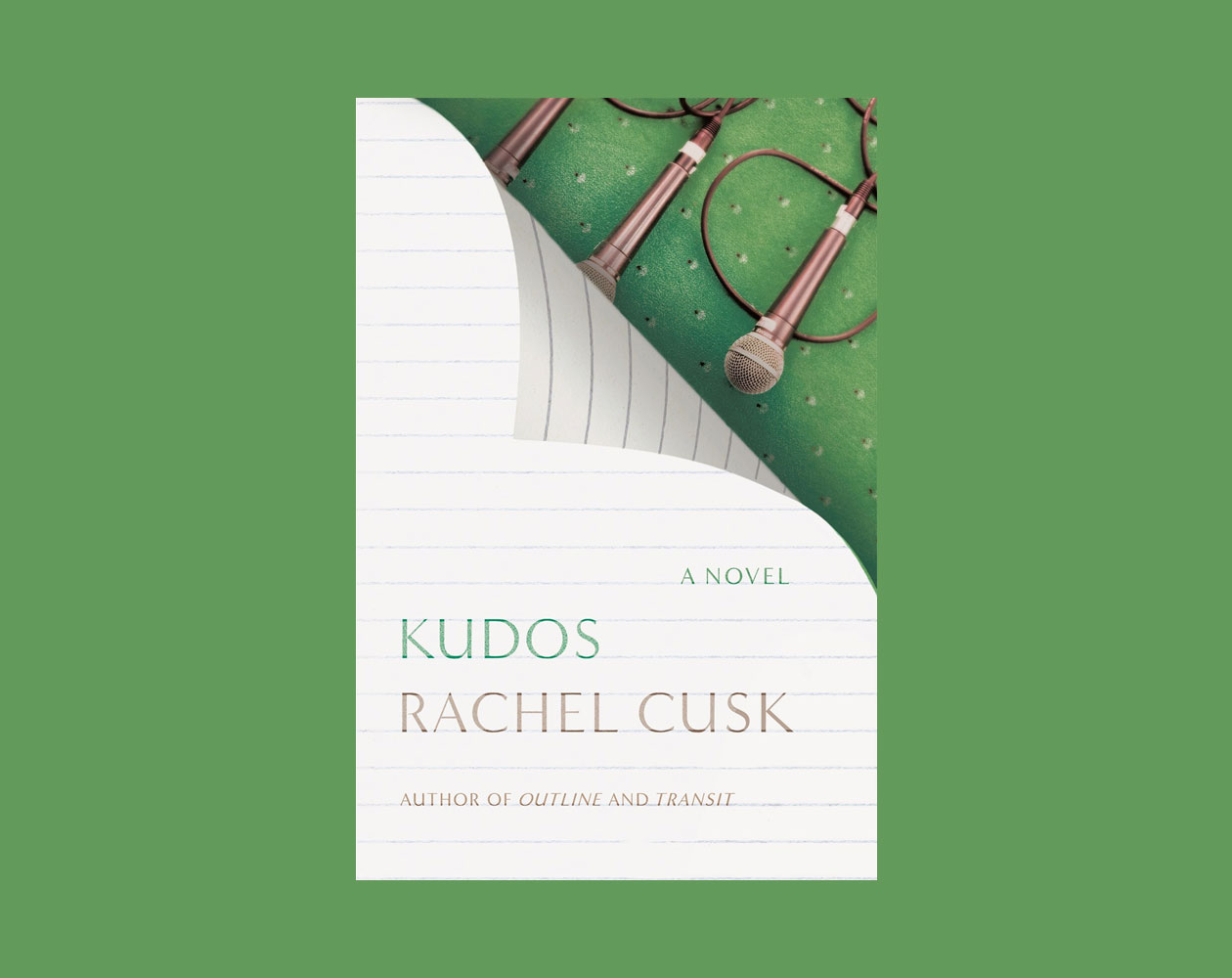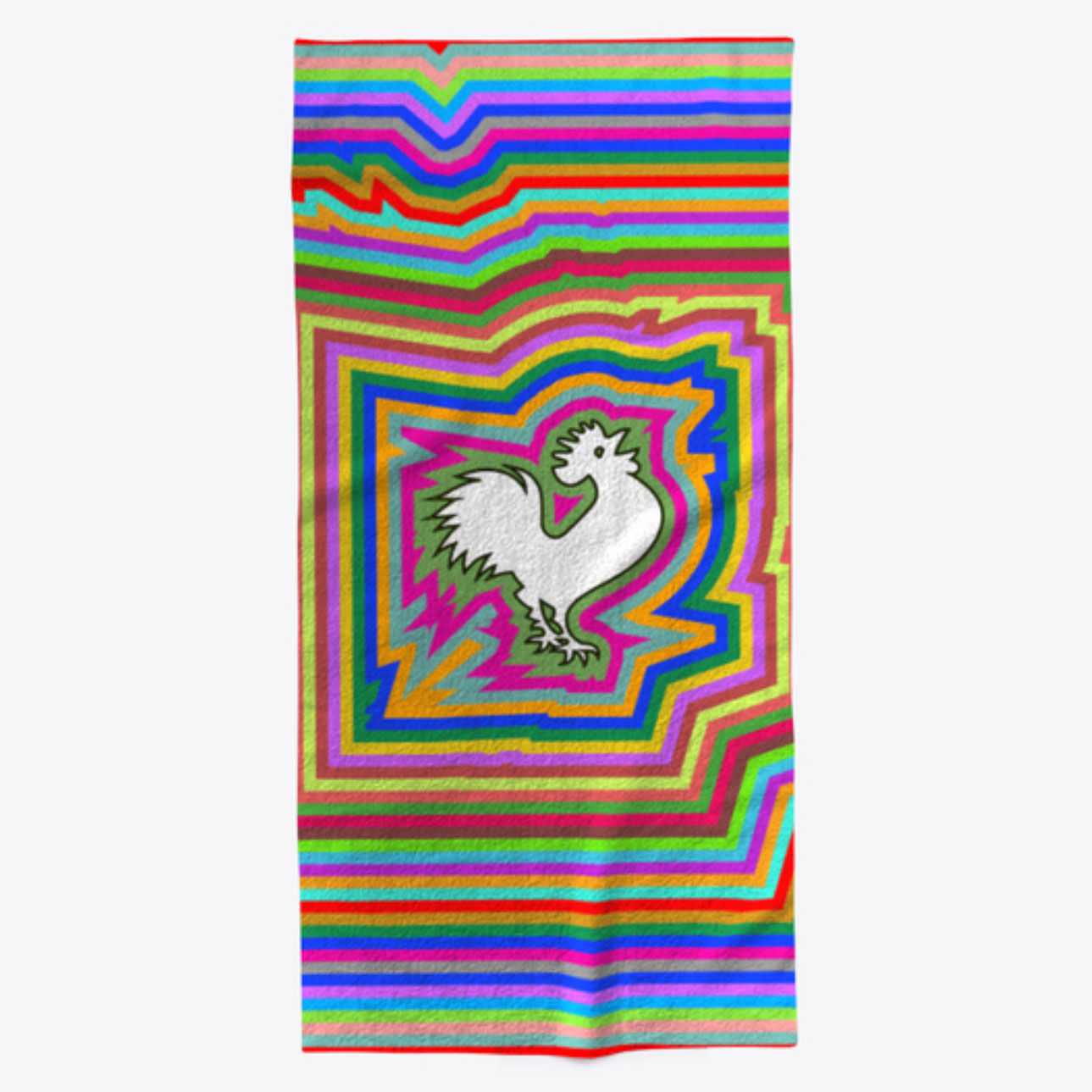The 2018 Rooster Summer Reading Challenge: Week Nine
It's a new month in the 2018 Rooster Summer Reading Challenge. This week we welcome a new judge, Emma Straub, who will be in conversation all month long with Nozlee Samadzadeh. First up: Kudos by Rachel Cusk.

Welcome to the 2018 Rooster Summer Reading Challenge. We’ve selected six Rooster-worthy works of fiction from 2018 to read through August—two per month—and once a week we meet here to discuss our reading progress.
Each month we’re joined by a new judge, who discusses the books with us and then selects which of that month’s two books heads to our summer finale—where you, the readers, decide which novel wins the 2018 Rooster Summer Reading Challenge and an automatic berth in the 2019 Tournament of Books.
(Which kinda counts for a lot, seeing how our 2017 summer winner, Fever Dream, stampeded through the 2018 ToB, eventually taking home the Rooster. By the way, if all of this is new to you, check out this Rooster primer.)
To select our summer books, each of our judges chose a work of fiction they were particularly excited about this year. The other three books were selected by the ToB Committee according to our normal criteria—novels first published in English in the calendar year that we feel are excellent and interesting. (To avoid conflicts, none of the judges were assigned the books they selected personally.)
A special thanks to our Sustaining Members for making another year of the Rooster Summer Reading Challenge possible. Find out why The Morning News and the Tournament of Books depend on your support, and please consider becoming a Sustaining Member or making a one-time donation.
This month we’re reading Kudos by Rachel Cusk and The Friend by Sigrid Nunez, with Emma Straub.
- See the reading list and discussion schedule
- Catch up on previous chats: Tomb Song (first half, second half), An American Marriage (first half, second half), Circe (first half, second half), Census (first half, second half)
- Jump into today’s discussion in the comments
Please note: We receive a cut from purchases made through the book links in this article.
Nozlee Samadzadeh: We’ve reached the third and final month of the 2018 Rooster Summer Reading Challenge, and the winner of this month’s pairing will face off at the end of this month against An American Marriage by Tayari Jones and Census by Jesse Ball for a spot in the 2019 Tournament of Books. Helping us decide whether the third book in the running is Kudos by Rachel Cusk or The Friend by Sigrid Nunez is novelist and bookstore co-owner Emma Straub, who last joined us as a Tournament of Books judge in 2012.
First up is Kudos, an unusual choice for the Tournament of Books because it is technically the final book of her Outline trilogy. We’ve had the first book in a trilogy a couple of times—Jeff VanderMeer’s Annihilation reached the quarterfinals in 2015, and Hilary Mantel’s Wolf Hall won the whole dang Tournament back in 2010—but never the last.
Emma Straub is a bestselling novelist whose books have been published in 20 countries, and the co-owner of Books Are Magic, an independent bookstore in Brooklyn, NY.
Nozlee Samadzadeh is the producer of the Tournament of Books and a developer at Vox Media.
Emma, thank you so much for talking about books with me this month!
Emma Straub: Hi hi hi. I want to preface this by saying that, very much like last time, only times one million, I am going to be a terrible judge because I a) believe that there are readers for all books, but not all books are for all readers; and b) as a bookseller, I am supportive of every book. OK. Hi. Can you tell that I’m feeling conflicted about being a judge? Also also, whenever I’ve done anything like this, readers always complain, and so, hello readers, yes, you are very excellent and smart and superior to me in many many ways, and next time, they should ask you! Proceed at your own risk.
Nozlee: In a way, we will be asking readers, since the final vote this summer is in their hands—the Summer Challenge is a little more equitable that way!
I have read neither Outline nor Transit, but I felt like I got all the context I needed in Kudos to understand that our narrator, Faye, is a divorced and remarried author at a literary festival—although it would be laughable to say that that is what the book is “about.” Faye travels on a plane (and talks to a man who’s had a rough night with the family pet), arrives at a hotel (and talks to her overly jovial publisher), is interviewed by a reporter (although the reporter does almost all of the talking), and walks to cocktails and dinner (and talks to a young man acting as a guide for the festival, a woman who imperiously demands that Faye come write at her home, and a man who is addicted to exercising and has ghostwritten a successful genre novel), but we only hear about it via the people she happens to be talking to—talked at by?—at any given time, rather than from her words.

Within the rituals of Europe’s literary culture, Faye finds the human story in disarray amid differing attitudes toward the public enactment of the creative persona, and she begins to identify among the people she meets a tension between truth and representation that causes her to consider questions of acclaim, justice, and the ultimate value of suffering. (Amazon / IndieBound / Powell’s)
Book description excerpted from publisher’s summary and edited for length.
Have you read the first two books, or were you going in cold like me? Did that change how you felt as you opened the book?
Emma: Yes, I went in cold. Despite the adoration of Cusk in my store and Twitter feed and my literary friend group, I hadn’t read her before, and I didn’t know what to expect.
Nozlee: Same same—I’m still wrapping my head around the book’s shifting guest narratives. Was there a character or conversation that resonated with you most? I can’t decide if we’re meant to sympathize with any of these people! They’re described so unsparingly that it’s almost cruel: “...the flesh at the cuffs and collar of his shirt was so white and unmarked it almost looked like plastic” and “She was a tiny, sinewy woman with a childlike body and a large, bony, sagacious face.”
Emma: I don’t know if we’re supposed to sympathize, but Faye sure doesn’t. I’d heard the term “autofiction” bandied about in regards to Cusk, which can describe authors as varied as Sheila Heti and Knausgård, and that didn’t prepare me for the quality you’re describing, which made me think of Richard Linklater’s Slacker, where you follow one person to the next.
There is connective tissue, but at least so far, I do keep feeling like I’m being pulled away from Faye when I want to get to know her more than these characters. The most we understand about Faye is her reaction to other people’s stories, all of which, as you describe, she tends to react to with a sort of harshness. I guess, though, to answer your question, the guy from the plane who has to bury his dog. But maybe that’s just because he was first!

Nozlee: As I finished this week’s half of the book, I found myself thinking back on him, too. He might be the least sympathetic character we encounter—he’s a man who’s worked hard for his early retirement and is now resentful of the reality of his family’s day-to-day life—but he felt more alive than the book publisher, the rational young man who loves math, or even the woman who has a complicated relationship with her divorced sister.
Maybe reading all three books would change this impression, but I found myself almost feeling like Faye was this empty receptacle (an outline, if you will) into which I could pour myself as I read—like I was the person standing or sitting there being told all of these stories. Do you feel like you have a strong sense of who Faye is?
Emma: I don’t. I think that the fun of reading these books (if the previous two are written in this same format) is piecing together Faye’s life from her reactions and descriptions of other people. It’s an interesting project, to be sure, and as soon as I opened the book, I understood why people become obsessed. There is something too about the project that seems purposefully challenging, even repellent, in the way that Faye keeps herself at a distance, and the text unfolds in these endless columns, daring your tired eyeballs to stay engaged. Even the font, the space on the page! This is not a book you can read quickly, or put down and pick up again without going back twenty pages to remember who the hell is talking. Of course, this is all coming from my perspective, which is a sleep-deprived and overworked mother of two small children, with a stack of TBR books as high as an elephant’s eye. I think the students who were in my postmodern literature class at Oberlin in 2002 are probably paralyzed with their love for Rachel Cusk. (It is perhaps needless to add that they were not, ever, paralyzed with their love for me.)
Nozlee: Youth is wasted on the young, Emma.
OK, I have to ask. Your bookstore, Books Are Magic, puts on panels and Q&As and events quite literally every night of the week, and I imagine you’ve attended a literary festival or three. Faye and the people who talk at her are pretty real about the annoyances of event production, from food vouchers that don’t work to luxurious Italian writing residencies that feel stifling. As part of the literary world, what did it bring up to read about it from that perspective?
Emma: There is some catty fun in trying to decipher who/what Cusk is talking about in that realm, sure. I’ve been to some literary festivals, and Cusk does capture some of the strangeness of being stranded in a place, surrounded by people you may have met before, in a similar context, as though you’re a part of an animatronic display at Stew Leonard’s, and roar back to life only when someone pushes the button. Because of the bookstore and the aforementioned small children, my current feeling about festivals and the like is that they are beautiful working vacations from the rest of my life, and you could sit me next to a guy who has dog-grave dirt under his fingernails and I wouldn’t even notice him because I would be so busy writing my pages or reading a book for pleasure.
Nozlee: I hope that everyone comments with the author they’d love to see represented above the dairy aisle at Stew Leonard’s, because now that’s all I can think about. And if you’ve read all three books in the Outline trilogy, I’d love to hear more about how it influenced your reading of Kudos.
I’m really curious to see what happens with Faye’s “purposefully challenging” narration in the second half of the book. This came up in July with Census: Maybe Kudos is also best read in one breathless runthrough. We’ll find out next week, when we discuss the rest of the book!

The Infinity Rooster finds its way to your beach chair, with a towel you could spot from the breakers. New batches print every three days—order yours now. As a reminder, Sustaining Members receive 50 percent off everything at the TMN Store. To find out why we’re asking for your support and how you can become a Sustaining Member, please visit our Membership page.
Subscribe to the Rooster newsletter
You will receive email from The Tournament of Books. Opt out at any time. (View our privacy policy.)
